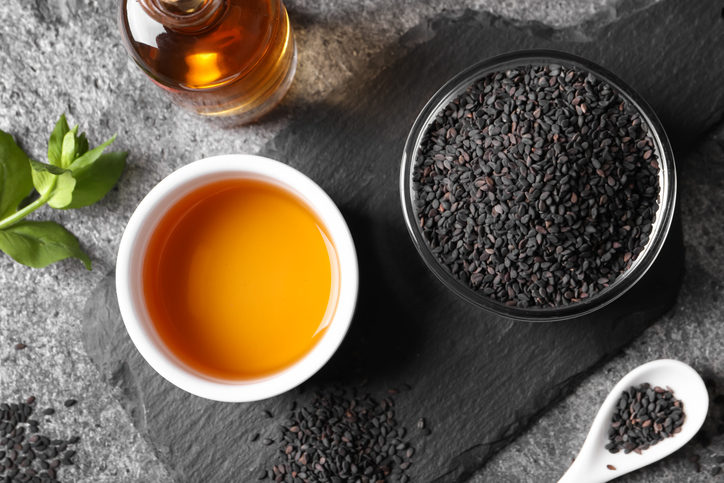Nigella has a long history of use as a food and traditional medicine, especially in the Middle East, the American Botanical Council (ABC) reported. Among the uses:
-
Whole or powdered nigella seeds are used:
-
- as a treatment for inflammation and respiratory conditions
- as a carminative to ease bowel and digestive problems
- for neurological disorders
- as a diuretic and diaphoretic (perspiration-inducing) agent.
-
-
The seed oil is used:
-
- externally as a remedy for skin diseases
- internally to treat stomach problems, respiratory ailments, and allergies, as well as to improve circulation.
-
Financial motivation for adulteration
Thenigella seed and seed oil BAPB, written by Nilüfer Orhan, Ph.D., summarizes the available scientific data on nigella seed and seed oil adulteration and analytical methods to detect adulteration. The bulletin also discusses the botany, uses, supply chain/value network, and market of the botanical. It was peer-reviewed by 15 experts in quality control of medicinal plants from academia, non-profit organizations, contract analytical laboratories, and the herb industry.Depending on the source, according to the release, nigella seed oil is 10 to 30 times more expensive than some of the common vegetable oils, providing a financial motivation for such fraud.
ABC reported that the whole seed is subject to adulteration by the seeds of other species ofNigella (particularlyN. damascena), and other lower-cost plant seeds of similar size and color. The seed oil may be adulterated with undisclosed lower-cost oils, such as palm (Elaeis guineensis), corn (Zea mays), sunflower (Helianthus annuus), soybean (Glycine max), or canola (Brassica napus) oil.
Related: BAPP Releases Bulletin on Saffron BAPP Publishes Bulletin on Eleuthero
“Nigella is a relatively little-known but increasingly popular botanical in the Western medicinal herb and dietary supplement industry," said Stefan Gafner, Ph.D., Chief Science Officer of ABC and Technical Director of BAPP, in the release. "As more human clinical studies are published to support its health benefits, particularly in the areas of glycemic control, improvement of lipid profiles, and reduction of biomarkers of inflammation, nigella seed oil appears to be destined to become a more important ingredient in the coming years. Due to the relatively high cost of nigella seed oil compared to other vegetable oils, there is a risk that some nigella seed oil in the global market is diluted or outright substituted with some of these lower-cost oils, similar to what has been reported with the popular botanical ingredient saw palmetto.”BAPP reaches milestone
This is the 26th bulletin and the 75th peer-reviewed publication published by BAPP. “Reaching the 75th document milestone is an accomplishment for BAPP,” said Ikhlas Khan, Ph.D., Director of the National Center for Natural Products Research (NCNPR) at the University of Mississippi. “It highlights how much has been accomplished, but there is much more to be done. We are thankful to Nilüfer Orhan and all our other BAPP writers for their excellent work and encourage more individuals and companies to become involved in the program.”As with all BAPP publications, BAPBs are freely accessible to ABC members, registered users of the ABC website, and all members of the public onthe program’s website(registration required).










